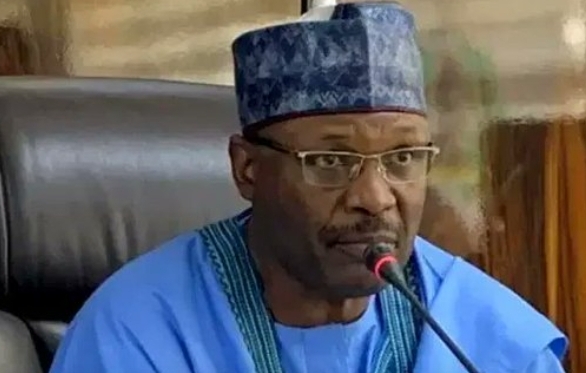TUESDAY April 29, 2025 |
By thenewsdesk.ng
In a country where elections can often feel like a high-stakes gamble, Nigeria’s electoral umpire is calling for the rules of the game to be tightened—and fast.
At a retreat in Lagos this week, Professor Mahmood Yakubu, Chairman of the Independent National Electoral Commission (INEC), addressed lawmakers with a firm but measured urgency.
His message was clear: it’s time to finish what we started when the Electoral Act of 2022 came into being.
“This isn’t just about tweaking language in the law,” Yakubu said, speaking before the National Assembly’s Joint Committee on Electoral Matters. “This is about future-proofing our democracy.”
He reminded attendees that a similar gathering five years ago had produced sweeping reforms, resulting in a new legal foundation for elections that embraced technology, plugged loopholes, and responded to years of public criticism.
One of the most consequential changes? Extending the gap between party primaries and general elections.
Before the 2022 reform, INEC had a mere 60 days to pull together an election after parties chose their candidates—barely enough time to print ballots, let alone navigate Nigeria’s complex logistics.
Now with 180 days, Yakubu noted, the 2023 general elections proceeded without the all-too-familiar delays.
But the job, he insisted, isn’t done. “We need to act quickly,” he said, urging lawmakers to complete remaining reforms well ahead of the next election cycle. Legal clarity, he argued, is essential—not just for INEC’s planning but for voters’ confidence.
His comments struck a chord, especially coming after a successful 2023 poll that saw a symbolic milestone: every single ballot paper and result sheet was printed in Nigeria, for the first time since the country’s return to democracy in 1999.
“No ballot was printed abroad,” Yakubu declared, a point that earned praise from the nation’s printing professionals and highlighted a growing self-reliance in electoral logistics.
More than just a technical achievement, Yakubu framed this retreat as a necessary bridge between lawmakers and election managers—both steeped in the experience of the campaign trail, and both integral to Nigeria’s democratic credibility.
“These conversations can’t happen in the rush of a public hearing,” he said. “They require time, reflection, and political will.”
That political will, he seemed to hint, is the one variable INEC can’t control.
INEC’s Yakubu Calls for Urgent Overhaul of Nigeria’s Electoral System
